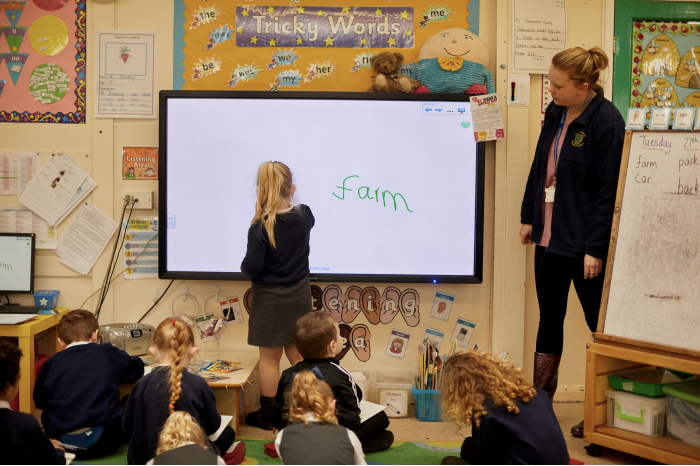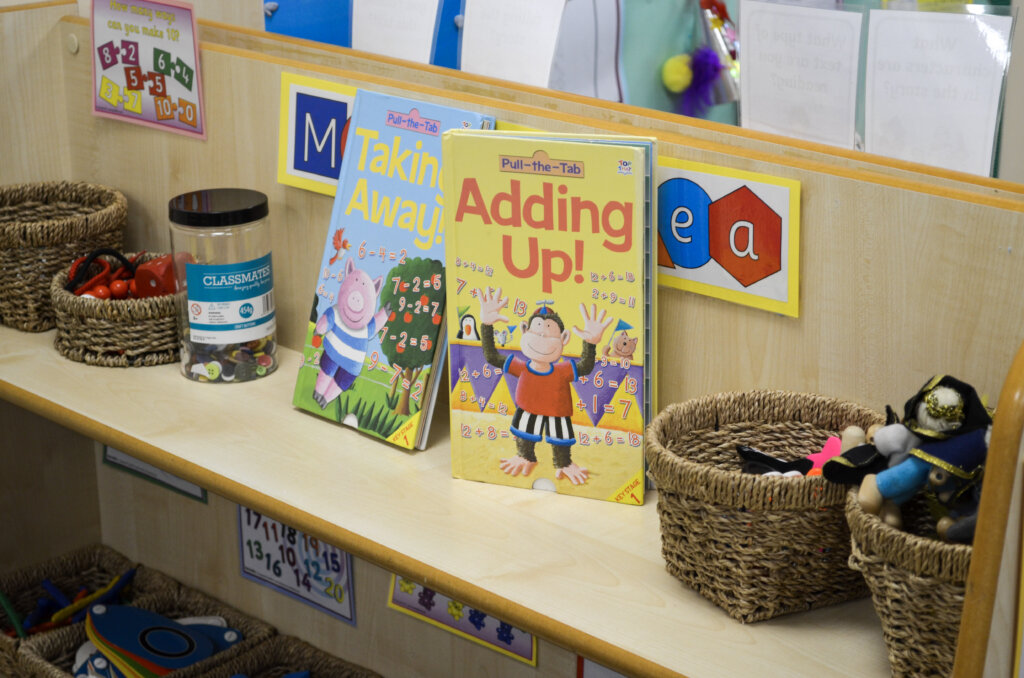At One Education, the foundation of our success lies with putting all children first. Everything we do, and each decision we make, goes back to what is best for every individual child; for them to reach their true potential – thriving in school and beyond, throughout their whole life.
There has been a lot of noise surrounding curriculums in schools recently, and I want to take this as an opportunity to talk about school curriculums as an extension of our vision around putting children first.
This academic year, our team has been asked to review many school and academy curriculums. At times, the curriculums we review can appear to be statutorily sound but, as we delve deeper, there can sometimes be a disconnect to the moral purpose of putting children first.
It can become apparent that there is no “us story” within the curriculum. Instead, we find off-the-peg schemes that have not been adapted to suit the school’s needs. In some situations, schemes provide a consistency that is key to learning. Curriculums bought off the peg however, though they help with workload, will never be specific to the children in your school, under your care. They don’t know the children in your classrooms, but you do.
This type of curriculum often comes about due to time pressures but, as Mary Myatt often exclaims, “the Curriculum is a never-ending story.” It should not be a race to tick every box because that sort of curriculum will never be able to showcase the wonderful locality of the school; the culture; the links that children could make between and within subjects; opportunities to see themselves in stories or to open doors to other worlds; possibilities to connect learning with the children’s own lives; or the ability to ensure a curriculum that suits all learners.
My curriculum story
I tried, as an NQT, to do what I was passionate about, putting the children first and creating a curriculum that suited all learners in my class. The school was in a deprived area and the Year One children had so much going on in their home lives that sitting down to learn was just not possible. They needed a personalised, individual curriculum for their needs and for their situations: they needed a play-based curriculum; they needed to have learning linked to inspirational people; to see themselves in stories, what’s more, they needed positive connections in their life.
Instead, they had a jam-packed curriculum following schemes of computing lessons, writing, reading, phonics, PE, maths, and foundation subjects despite not achieving their ELGs in EYFS. One day that stands out significantly in my mind was a cold winter’s day when it had snowed heavily overnight. We were the only school in the area that was open that day and, when I got to school, I was told that, under no circumstances, were the children allowed to play out in the snow. We had to continue with the timetable and the schemes as planned. I remember 30 young five-year olds looking at me, then back at the snow, with puppy dog eyes. I made a decision there and then that I couldn’t continue my career in a school that didn’t share my values. With a combination of being inexperienced and a school culture that did not match my moral purpose, I did what I never thought I would do, I handed in my notice part way through my NQT year. It’s my biggest regret in my career, not staying and fighting for my moral purpose and for those children but I think, in fact I know, if I had stayed another term then I would have left teaching for good.
When I went to my next school, I found an SLT who were willing to listen and try out suggestions. I was allowed to deviate away from the literacy hour and the QCA units. I embedded a play-based curriculum. I worked hard and governors agreed that it was working when Ofsted said I was outstanding – back in the day when they did that, and data reflected their findings. But more than that, we were a community. As my role changed within the school and my responsibility grew, we worked together to ensure that the curriculum provided continuity, we planned in collaboration and ensured progression.
When the National Curriculum changed in 2014, I set about changing the curriculum to be bespoke to our pupils in our school. We made connections to the lives of our children in the school and the local area, enriching their lives with stories in everything we could. We linked the curriculum to careers and widened experiences to develop aspirations. We considered people that would inspire our children to learn: artists, designers, athletes, significant people from history. We invited parents in, people from the community, local university staff and a wealth of professionals from further afield (even a deep-sea diver who skyped us from under the ocean, way before Zoom was a thing!) The curriculum was unique to our school, it supported the strengths of our staff, the individual needs of our children AND we felt like a family.
The curriculum we built changed and adapted to suit the needs of each cohort and each child, whilst ensuring the progression across the school continued; tracking anything that had changed for each cohort so that teachers had a good understanding of prior learning. What’s more, if a child didn’t learn the way we taught something, then we adapted our practice and explored other ways.

Your curriculum story
I feel privileged in being able to support so many schools who are passionate about getting their curriculum right for their children. The school curriculum is more than just the National Curriculum: it’s about connections, about knowledge, skills, stories, resilience and a magic that can’t be found elsewhere, which inspires children to achieve in ways they never thought possible. A unique school curriculum is a lifeline for some children (and their parents) that may otherwise falter or fail in the education system.
The curriculum is never a finished product, we will always want to monitor, evaluate and review our school curriculum to suit the needs of the children in our setting. To support your school in reviewing where you are on your curriculum journey, you may want to ask questions such as those below:
Intent
What is your rationale for how you have organised your curriculum?
Why this curriculum for these children, in this school, at this time?
How is the school’s curriculum planned and taught and sequenced so that new concepts, knowledge and skills build on what has been taught before, and towards those defined end points?
What is the school’s focus for and approach to CPD, what has been the impact of staff CPD for NQT’s/RQT’s/Experienced Teachers?
Which subjects are the strongest and why? Which subject/s are at an early stage of development? Plans in place to address this?
How do you ensure that children are articulate, have strong oracy skills and have developed an excellent understand of key vocabulary across all subjects?
Implementation
What will we see in lessons? What are your pedagogical strategies to ensure children learn more and remember more? Is this consistently established/developed/embedded throughout the school?
What are the strengths and areas to improve in the implementation of your curriculum?
Impact
How do you check that pupils have learnt the curriculum – how do you know that all children have acquired the knowledge and cultural capital to succeed in life? How do you know they are ready for the next stage of their education/transition points?
What are the strengths and areas to improve in the leadership of the curriculum, particularly in terms of impact?
(In addition: EYFS should be considered at every point in every question if you are an infant or primary school)
But, in considering a curriculum for all, we may also want to consider a few extra questions such as:
11. How is your curriculum unique to your school? How does it tell your story?
How does your curriculum create a sense of belonging and togetherness for all stakeholders?
How has your curriculum been created to harness the strengths of your school, staff and children?
How does your curriculum create magic, awe and inspiration that stays with children for life?
How do you ensure that you adapt, change and review your curriculum to suit different learners?

Once SLT have considered these questions, it is also worth understanding the thoughts of subject leads, teachers, children and other stakeholders. Do all groups of stakeholders express the same views about your unique curriculum and do they tell a similar curriculum story? This is where we need to consider how our curriculum vision and values are shared and developed across the school community. You may want to consider sharing the school’s unique curriculum story in ways such as those listed below:
Consult with all stakeholders when establishing a shared curriculum vision.
Develop the curriculum story based on the experience of the whole school community
Ensure the curriculum story supports the direction of strategic planning
Discussions in staff meetings, curriculum meetings and parent events link to the curriculum vision
The school’s unique curriculum story is shared in newsletters, offices, staff rooms, school corridors and websites
The school’s curriculum is an explicit reference point throughout professional learning activities
The school’s unique curriculum story is referenced when success is being celebrated
It is tied to the day-to-day work of the school when school tours and information events are held
In addition to celebrating successes, develop a culture where you as a leader show what the curriculum vision looks like, rather than telling people what to expect. If all members of the school community show the vision, it becomes a reality. As leaders, we also need to ensure we support others to become more comfortable with calculated risks. This approach requires that all involved realise that teaching the curriculum is not always going to be perfect. Just like we tell our children, it is ok to make mistakes and things aren’t going to be perfect. Embrace those missteps and use them to allow you to progress on the never-ending journey of your school’s unique curriculum.
So, what is your school’s unique curriculum story? How are you creating a curriculum that suits all learners in your school and opening doors to endless possibilities? You have the power to change lives; ensuring that all children are able to succeed in education, and beyond.
Free Download
To support you in your journey of curriculum planning, a planning format considering progression, key concepts, experiences and more can be downloaded here.
Next Steps
To learn more about leading the development of your curriculum and other aspects of leadership in education, our new leadership network hopes to inspire school and academy leaders to connect, discuss and reflect upon their individual situation, consider crucial relationships and leadership challenges within a supportive space. Each session will consider four different areas:
Leadership: Looking at various aspects of being a leader
Experts: Speakers providing inspiration and information
Advice: Guidance, updates, reviews and research around specific topics
Develop: Focusing on best practice within specific areas with resources and frameworks to take away and implement for all delegates.
The dates and subjects for the academic year 2022/23 are as follows:
10th November 2022 – Leadership: Focusing on yourself as a leader; Experts: Safeguarding and Wellbeing; Advice: Research and white paper; Develop: SEF, SDP and HTPM.
2nd February 2023 – Leadership: Focusing on your leadership team; Experts: EYFS and SEND; Advice: Culture and Ethos; Develop: Curriculum reviews.
25th May 2023 – Leadership: Focusing on your school; Experts: Academisation and HR; Advice: Future of Education; Develop: Policies and Procedures
To book please visit the event page. For more information on school leadership or curriculum development, please contact Jo Gray, Head of Educational development at jo.gray@oneeducation.co.uk












